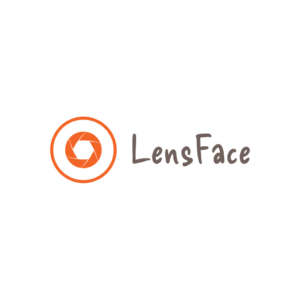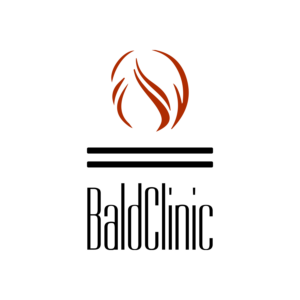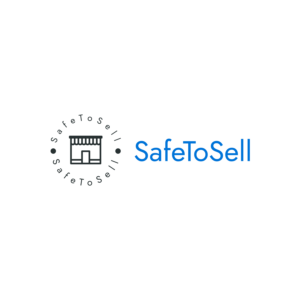
- Automotive, Beauty, Blogs, Business, E-commerce, Education, Entertainment, Finance, Food, Health, Home, Lifestyle, Non-profit, Parenting, Real Estate, Services, Sports, Technology, Travel, Wedding
- 25 Apr 2023
- user
Tips and best practices for selecting a domain name that is memorable, brandable, SEO-friendly, and aligned with business goals.
In today’s digital landscape, a domain name is more than just a website address; it’s a crucial element of a brand’s online identity. A well-chosen domain name can help establish a strong online presence, enhance branding, and contribute to search engine optimization (SEO) efforts. However, with millions of domain names already registered, choosing the perfect domain name requires careful consideration and strategy. In this article, we’ll delve into the art of choosing the perfect domain name, providing tips and best practices for selecting a domain name that aligns with your brand, resonates with your target audience, and helps you achieve your business goals.
Keep it Memorable and Brandable
A memorable and brandable domain name is one that is easy to remember, pronounce, and spell. It should reflect your brand’s identity, values, and messaging. Avoid long, complex, or generic domain names that are hard to remember or easily confused with other similar domain names. Instead, aim for a short, catchy, and unique domain name that stands out from the competition and leaves a lasting impression on your audience. Consider using keywords that are relevant to your brand or industry, or create a brandable name that is distinctive and memorable.
For example, if your business is a bakery specializing in custom cakes, a domain name like “DeliciousCustomCakes.com” would be more memorable and brandable than a generic domain name like “BakeryCakesOnline.com”. It not only reflects the brand name but also communicates the unique selling proposition (custom cakes) of the business.
Consider SEO Factors
While not as critical as it used to be, domain names can still impact SEO efforts. Including relevant keywords in your domain name can help improve your website’s search engine ranking for those keywords. However, it’s important to strike a balance between incorporating keywords and maintaining a brandable domain name. Avoid keyword stuffing or using exact match domain names that may come across as spammy or low-quality.
For example, if your business is a digital marketing agency specializing in SEO services, a domain name like “SEOExperts.com” might seem too generic and may not stand out among the competition. Instead, a domain name like “DigitalMarketingGurus.com” could be a better option, as it incorporates relevant keywords (digital marketing, gurus) while still being brandable and memorable.
Check Availability and Trademarks
Before settling on a domain name, checking its availability and potential trademark conflicts is crucial. Conduct a thorough search to ensure that the domain name you’re considering is not already registered by someone else. You can use domain registrars or domain search tools to check the availability of domain names. It’s also important to check for any trademark conflicts to avoid potential legal issues in the future. Trademark conflicts can arise if the domain name you’re considering is similar to an existing trademark, which can result in legal disputes and financial repercussions.
For example, if your business is a digital marketing agency specializing in SEO services, a domain name like “SEOExperts.com” might seem too generic and may not stand out among the competition. Instead, a domain name like “DigitalMarketingGurus.com” could be a better option, as it incorporates relevant keywords (digital marketing, gurus) while still being brandable and memorable.
Consider Your Target Audience
When choosing a domain name, it’s important to consider your target audience. Think about the demographics, interests, and preferences of your target audience, and choose a domain name that resonates with them. A domain name that speaks directly to your target audience can help establish an emotional connection, build trust, and increase the chances of them remembering and visiting your website.
For example, if your target audience is young and tech-savvy, a domain name like “TechNinjas.com” could be appealing, while a more formal or corporate audience may prefer a domain name like “TechConsultingExperts.com”.
Avoid Hyphens and Numbers
Hyphens and numbers can make a domain name more complicated and harder to remember. It’s best to avoid using hyphens or numbers in your domain name, as they can be easily misunderstood or forgotten by users. Hyphens can also create confusion when communicating your domain name verbally, as it may not be clear whether the hyphen should be included or omitted. Similarly, numbers can be easily confused with their spelled-out counterparts or may require additional explanation when shared verbally.
For example, a domain name like “Best-Web-Design.com” may be confusing for users, as they may not know whether to include the hyphens or not. Similarly, a domain name like “Tech4U.com” may require additional explanation when shared verbally, as users may not know whether to type “four” or “4” in the domain name.
Think Long-term
When choosing a domain name, think long-term and consider your brand’s future growth and expansion. Avoid domain names that may limit your business’s potential to expand into other markets or offer new products or services. Choose a domain name that is flexible and adaptable to accommodate any future changes in your business.
For example, if you’re a local bakery with plans to expand nationally or internationally in the future, a domain name like “LocalBakeryNY.com” may limit your expansion opportunities. Instead, a more versatile domain name like “SweetTreats.com” would allow for broader brand positioning and future growth.
Research Competitors
Researching your competitors’ domain names can provide insights and inspiration for choosing your own domain name. Analyze the domain names of your competitors to identify any common themes or trends, and use that information to come up with a unique and differentiated domain name for your brand. Avoid choosing a domain name that is too similar or easily confused with a competitor’s domain name, as it may result in lost traffic and confusion among users.
Consider Domain Extensions
Domain extensions, also known as top-level domains (TLDs), are the suffixes that come after the domain name, such as .com, .org, .net, etc. While .com is the most popular and widely recognized domain extension, there are numerous other options available, including industry-specific extensions (.tech, .design, .store, etc.) or country-specific extensions (.co.uk, .fr, .au, etc.). Consider the nature of your business, target audience, and branding strategy when choosing a domain extension.
For example, if you’re a design agency, a domain name like “YourAgency.design” could be more relevant and memorable than “YourAgency.com”. Similarly, if your business is local and targets a specific country, using a country-specific domain extension like “.co.uk” (for the UK) or “.fr” (for France) could help establish local credibility and appeal to your target audience.
In conclusion, choosing the perfect domain name is an important step in building a successful online presence for your brand. It requires careful consideration, research, and strategic thinking to ensure that your domain name aligns with your brand, resonates with your target audience, and helps you achieve your business goals. By following the tips and best practices outlined in this article, you can make an informed decision and choose a domain name that sets your brand up for success in the digital world.
Post Views: 118



















